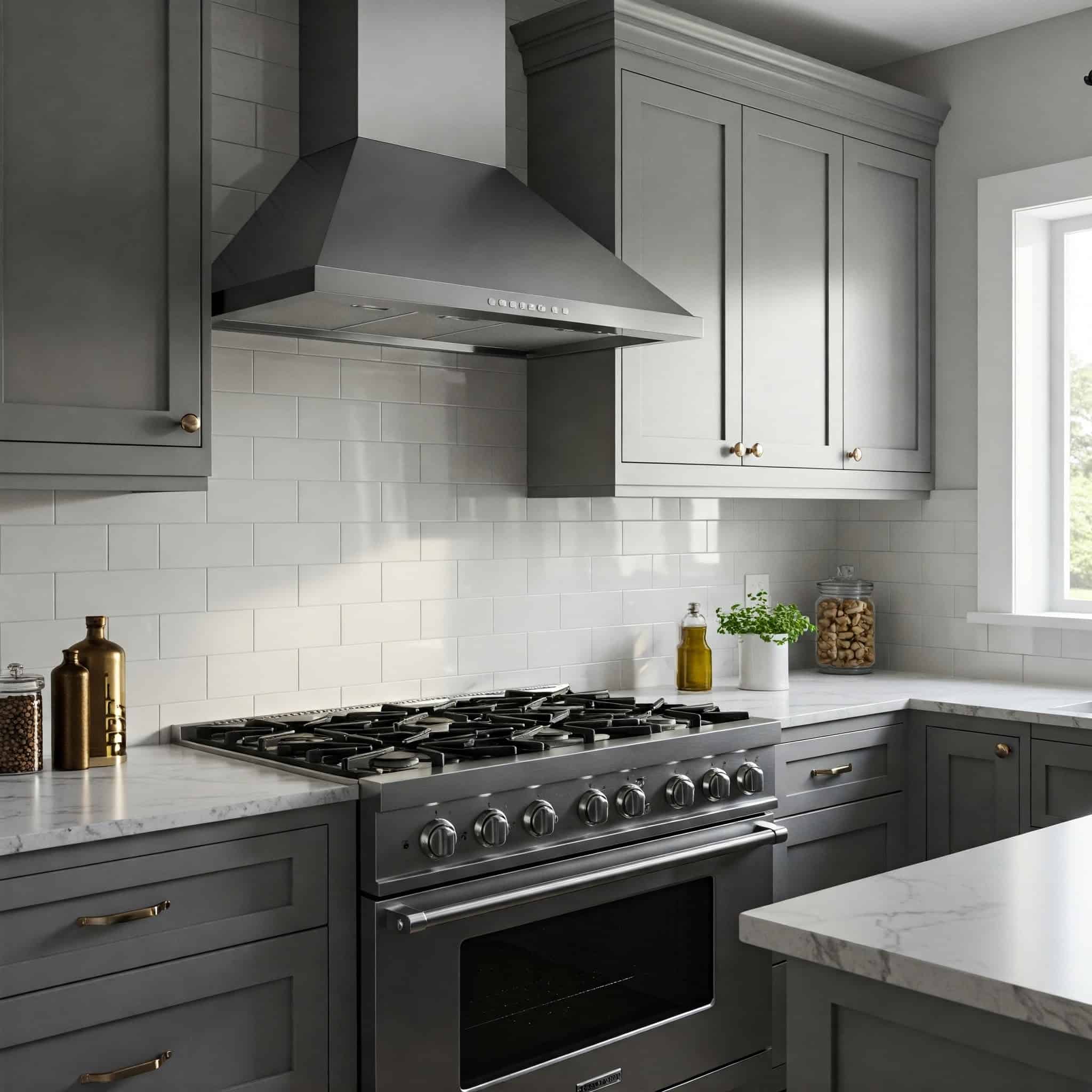
Question: Do I Legally Need an Extractor Fan in My Kitchen?
Answer: Whether you legally need an extractor fan depends on various factors. Building regulations generally require ventilation, but an extractor fan may not always be mandatory. Check your local building codes for specific requirements.
Legal Requirements and Best Practices
A properly ventilated kitchen improves air quality and comfort. Many homeowners wonder about extractor fan requirements. This article explains the legal aspects of kitchen ventilation and offers practical advice for a healthier home.
Do I Legally Need an Extractor Fan in My Kitchen?
Building regulations often mandate ventilation, especially for new constructions and renovations. Requirements vary based on location and building type. Always check local building codes for your area’s specific rules.
While extractor fans are common, the law might not always demand one. Alternative solutions, like openable windows, may suffice in certain cases. However, an extractor fan usually offers superior ventilation, particularly for kitchens with gas appliances.
Click here for more information on kitchen cabinet refacing Toronto
Related Article: What Can I Use Instead of an Extractor Fan in My Kitchen?
Related Article: Where is the Best Place To Put an Exhaust Fan in the Kitchen?
Extractor Fan Alternatives: Exploring Your Options
If an extractor fan isn’t mandatory, other options exist. Openable windows provide natural ventilation. However, their effectiveness depends on weather conditions and window placement. Trickle vents offer continuous airflow, but their capacity is limited. Mechanical ventilation systems with heat recovery (MVHR) provide balanced, energy-efficient ventilation. They extract stale air and supply fresh, filtered air while recovering heat.
Each alternative has pros and cons. Windows offer free, natural ventilation, but they don’t filter air. Trickle vents provide continuous ventilation but might not suffice for heavy cooking. MVHR systems are efficient but more expensive to install. Consider your budget, cooking habits, and local climate when choosing a ventilation solution.
Related Article: Do Air Fryers Need an Extractor Fan?
Related Article: Do You Need an Electrician To Install a Kitchen Extractor Fan?
Benefits of Effective Kitchen Ventilation
Proper ventilation removes cooking odors and airborne grease. This creates a cleaner, more pleasant cooking environment. It also protects surfaces from grease buildup, reducing cleaning time. Good ventilation removes excess moisture, preventing condensation and mold growth, which benefits health and preserves the building structure. Effective ventilation also removes combustion byproducts from gas appliances, improving indoor air quality and reducing health risks.
Improved air quality contributes to a healthier home environment. Reduced moisture prevents mold and mildew growth, which can trigger allergies and respiratory issues. Removing combustion byproducts safeguards against carbon monoxide poisoning. A well-ventilated kitchen is a healthier kitchen.
Related Article: What Extractor Fan Does Not Need Ducting?
Related Article: What is the Best Alternative To an Extractor Fan in the Kitchen?
Choosing the Right Extractor Fan
Several factors influence extractor fan selection. Consider your kitchen size and cooking style. Measure the airflow capacity in cubic meters per hour (m³/hr) to ensure it matches your needs. Choose the correct ducting size for efficient airflow. Consider noise levels, especially for open-plan kitchens. Select a fan with easy-to-clean filters for convenient maintenance.
Different types of extractor fans exist. Wall-mounted fans are common and easy to install. Ceiling-mounted fans are suitable for island cooktops. Integrated fans fit discreetly into cabinets. Downdraft fans are integrated into the cooktop and extract downwards. Each type has specific installation requirements and suitability for different kitchen layouts.
Installation and Maintenance
Proper installation is important for optimal extractor fan performance. Follow manufacturer instructions carefully. Ensure proper ducting to the outside to prevent recirculating stale air. Regular maintenance ensures the fan’s effectiveness. Clean or replace filters according to manufacturer recommendations. Check the fan and ducting periodically for obstructions. A well-maintained extractor fan provides efficient ventilation for years.
Professional installation ensures optimal performance and compliance with building regulations. A qualified electrician can safely connect the electrical supply and ensure proper grounding. Consult a professional for advice on installation and maintenance if you are unsure. Regular cleaning and maintenance extends the fan’s lifespan and ensures efficient operation.
Conclusion
Whether you legally need an extractor fan in your kitchen depends on local building regulations and your specific situation. While extractor fans are common and effective, alternatives like openable windows or mechanical ventilation systems may suffice in some cases. Regardless of the solution you choose, proper ventilation is essential for a healthy home environment.
Maintaining a healthy home environment requires effective kitchen ventilation. Consider the various options and benefits to choose the best ventilation solution for your needs. By understanding these factors, you can create a cleaner, healthier, and more enjoyable kitchen space.

Blue Malue Get in touch with Blue here.
